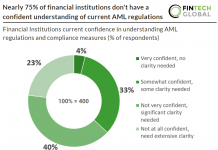As we delve deeper into 2024, the embedded finance phenomenon continues to reshape the financial services sector. A Capgemini survey from 2021 revealed that over 70% of banking executives view embedded finance as a catalyst for innovation, customer base expansion, and cost reduction, predicting its market value to soar to $588bn by 2030 from $22bn in 2020. This trend positions embedded finance as a key strategic channel for banks.
Kidbrooke, which offers a cloud-based API platform for the wealth management sector, recently delved into the future of finance and the role of embedded finance.
Embedded finance’s allure lies in its seamless integration of financial services into various consumer and business platforms, enhancing user experiences and opening new revenue channels across sectors such as hospitality, retail, e-commerce, and transportation. This article explores the embedded finance landscape, highlighting trends, technologies, and how financial institutions can leverage this opportunity through unified financial analytics.
Embedded finance transcends mere convenience by embedding banking and payment services into everyday activities, thereby fostering intuitive and user-friendly financial solutions. According to a recent EY survey, over 70% of fintech executives believe that more than half of financial services will soon be delivered through non-financial channels. This shift not only revolutionises banking but also strengthens customer relationships by integrating financial solutions directly within various platforms.
The era of embedded finance signals a move towards real-time financial products, necessitating a collaborative approach between financial institutions and FinTech companies to merge traditional financial expertise with innovative technological solutions.
At the heart of embedded finance lies technology. APIs play a crucial role in integrating financial services into the customer journeys of non-financial industries. Fredrik Davéus, CEO of Kidbrooke, recently explored the application of embedded finance across various sectors, including insurance and banking services on non-bank platforms. After extensive research into embedded finance, Kidbrooke has come to the conclusion that it is a highly collaborative field and FinTech will play a pivotal role in facilitating partnerships between financial services and non-financial firms.
Kidbrooke’s unified approach to data and analytics exemplifies how technology can provide seamless, personalised services, highlighting the significance of advanced financial analytics in delivering customer-centric financial solutions.
Despite the promise of embedded finance, financial services’ regulatory complexity suggests that tech giants may not dominate this space in the near future. Financial institutions must adapt by integrating their services within consumer platforms, leveraging advanced financial analytics, navigating regulatory challenges, and fostering collaborative ecosystems. Such strategies are vital for thriving in the embedded finance landscape.
Embedded finance represents a paradigm shift in the financial services industry, offering both traditional and new market players unparalleled opportunities for innovation and growth. By embracing advanced analytics and collaborative models, banks, insurers, and wealth managers can deliver more engaging, personalised, and seamless financial experiences. The future of finance, characterised by integrated solutions, not only enhances user experiences but also opens new revenue avenues, underscoring its importance in strategic planning for financial institutions.
Read the story here.
Keep up with all the latest FinTech news here.
Copyright © 2024 FinTech Global











